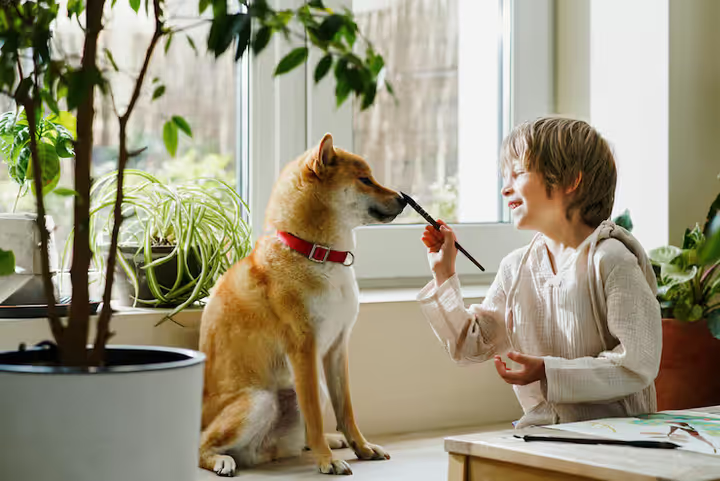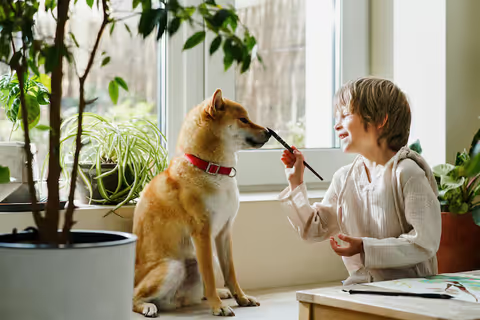
Comprehensive Pet Care Tips and Supply Insights An Informative Guide for Pet Owners
Pet care is the holistic process of meeting the physical, emotional, and environmental needs of companion animals whether dogs, cats, birds, small mammals, or other petsand ensuring they live healthy, enriched lives.
As more households include pets, the topic has expanded from basic feeding and shelter to encompass nutrition, behaviour, grooming, enrichment, supplies, and health monitoring. It exists because pets are increasingly integrated into human lives as family members, not just as animals kept for utility, and that shift brings both responsibilities and opportunities.

Importance
Pets today are cared for in more sophisticated ways, and that matters for several reasons:
-
Who it affects: Millions of households around the world—and in India specifically—own pets. The quality of care they receive affects their welfare and the human-animal bond.
-
Problems it solves: Proper pet care addresses issues such as illness, behavioural problems, obesity, stress, abandonment, or neglect. It also helps with the human benefit: companionship, mental health, routine, and responsibility.
-
Why it matters now: With rising pet ownership and new types of pets, people need updated guidance on supplies and care. Especially in urban settings with apartments, travel demands, changing lifestyles, and higher awareness of pet wellness, good information helps avert health risks, behavioural challenges, and supply mismatches.
Recent Updates
Several key recent trends are shaping pet care in 2024–2025:
-
Growing focus on health and wellness for pets: premium nutrition, preventive care, personalised diets, and wellness-oriented products.
-
Increasing use of technology in pet care: smart collars, activity trackers, automated feeders, and behaviour-monitoring devices.
-
Rising demand for sustainability and eco-friendly supplies: biodegradable waste bags, sustainably sourced pet food, and eco-safe toys.
-
Local regulations in India are being enforced more strictly around pet registration, stray animal management, and pet shop licensing.
-
The pet retail and supply industry continues to expand, with e-commerce and niche supply categories growing rapidly.
These updates reflect a richer, more complex pet-care landscape than even a few years ago.
Laws or Policies
If you’re a pet owner in India, it’s useful to be aware of applicable laws and regulations that affect pet care and supplies:
-
The Prevention of Cruelty to Animals Act, 1960 aims to prevent unnecessary pain or suffering to animals and applies nationwide.
-
The Animal Welfare Board of India (AWBI) issues advisories and guidelines for pet dogs, stray animals, and pet shops.
-
The Prevention of Cruelty to Animals (Pet Shop) Rules, 2018 specify that pet shops must register with the state animal welfare board and cannot operate without valid registration.
-
Many municipalities enforce local bylaws and licensing requirements for pet registration, dog leashing, and pet-owner responsibilities.
-
Housing societies and resident welfare associations (RWAs) cannot legally impose blanket bans on pet ownership, as per AWBI guidance and legal precedents.
Understanding these laws helps ensure your pet and household remain within legal and ethical norms.
Tools and Resources
Here are helpful tools, apps, and resources to support good pet care:
-
Smart devices and apps for tracking pet activity, health, and location (GPS collars, fitness trackers).
-
Official websites of animal welfare boards for updated rules and responsible-ownership guidelines.
-
Online calculators for determining pet nutrition needs based on age, breed, and weight.
-
Pet-care checklists for essential supplies: bedding, leash, bowls, grooming tools, toys, and first-aid kits.
-
Community forums and social groups for exchanging tips and learning from other pet owners.
-
Tele-vet and remote-care apps for veterinary consultations and follow-ups.
-
Pet nutrition and training blogs to stay updated with expert advice and behavioural guidance.
Frequently Asked Questions
Q: How often should I take my pet for a vet check-up?
A: For healthy adult pets, once or twice a year is a good baseline. Senior pets or those with chronic conditions may need more frequent checks. Preventive vet visits help catch issues early.
Q: How do I choose the right supplies (food, toys, bedding) for my pet?
A: Consider your pet’s species, breed, age, weight, and health status. Look for supplies that meet safety and quality standards. Read labels carefully and choose durable, non-toxic materials.
Q: What are common behavioural issues and how can I manage them?
A: Common issues include separation anxiety, excessive barking, furniture scratching, or litter-box avoidance. Management includes consistent routines, mental stimulation, and positive-reinforcement training.
Q: Are there any special considerations for pet care in Indian urban apartments?
A: Yes. Smaller spaces require structured exercise and enrichment through walks and interactive play. Temperature control, regular grooming, and waste management are also important in apartment living.
Q: What should I know about pet nutrition and feeding routines?
A: Choose food that suits your pet’s species, age, and health needs. Maintain regular feeding schedules, ensure fresh water is available, and avoid human foods that can be toxic to pets.
Conclusion
Responsible pet care goes beyond food and shelter. It means understanding and fulfilling the physical, behavioural, and emotional needs of your pets while staying updated on new trends, laws, and supplies. Today’s pet owners have more tools and information than ever before—smart technology, expert advice, eco-friendly products, and supportive communities. Using these resources wisely ensures your companion’s happiness and health. With awareness, consistency, and compassion, you can build a strong and fulfilling bond with your pet that enriches both your lives.






